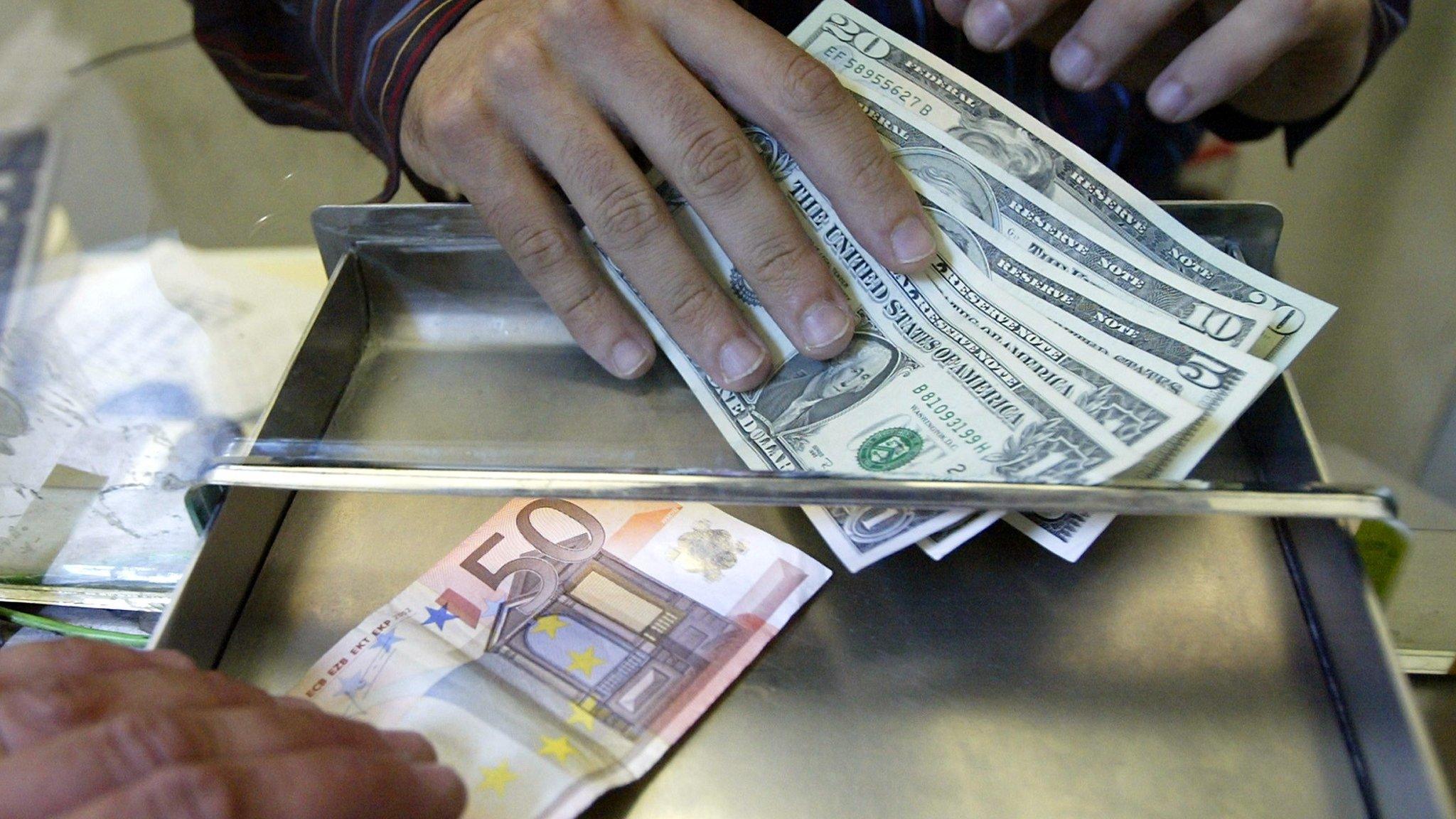Tesco removes Marmite and other Unilever brands in price row
- Published
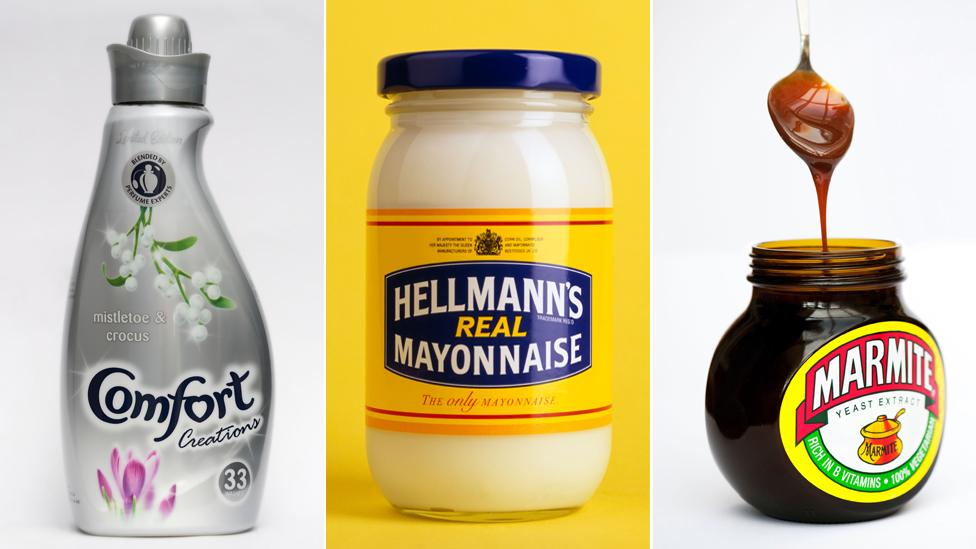
Marmite, PG Tips tea and Pot Noodles are among dozens of brands currently unavailable on Tesco's online site due to a dispute with Unilever.
Unilever has confirmed it is raising prices in the UK to compensate for the sharp drop in the pound's value.
Tesco is resisting the move and has removed Unilever products from its website.
Unilever's finance chief said such price increases are a "normal" reaction to shifts in currency values.
The products currently absent from Tesco's website also include Comfort fabric conditioner, Hellmann's mayonnaise and Ben & Jerry's ice cream. You can find a full list here.
The goods are still being sold in stores.
Retailers warn over Brexit price rises
Unilever and Tesco at loggerheads
Unilever is the UK's biggest food and grocery manufacturer, but many of its products are made outside the UK, so it argues it should be getting more pounds for its products.
Graeme Pitkethly, Unilever's chief financial officer, said the price rises had "landed" with other customers, implying other retailers had accepted the higher prices.
Major supermarket chains including Sainburys, Morrisons and Waitrose declined to comment on specific supplier relationships.
A spokesperson for Lidl said: "Whilst we do not discuss buying prices, we can always assure our customers that we will offer them the best quality products at the lowest retail prices."
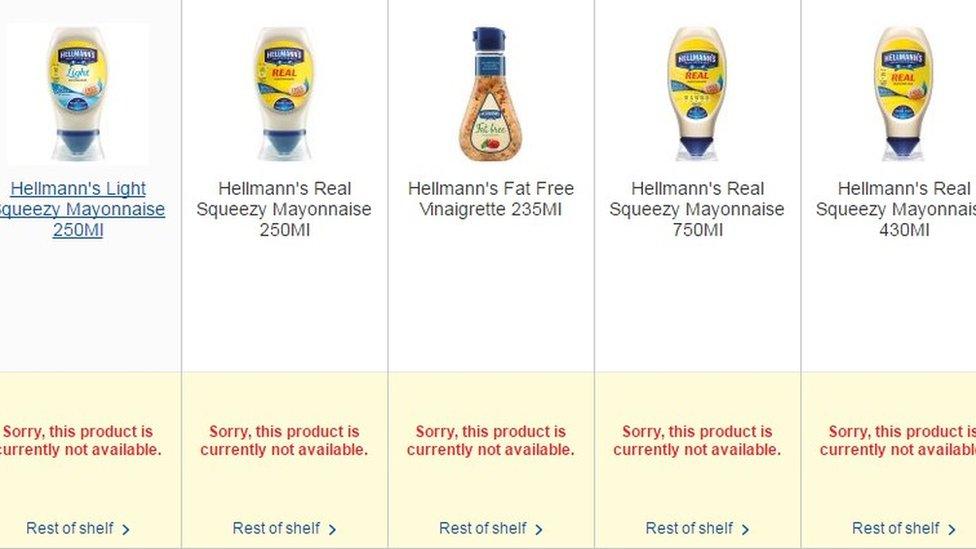
The Food and Drink Federation on Tuesday published the results of a survey, external which found serious concerns and decreased confidence in the sector.
Some 75% of respondents reported seeing an increase in the price of ingredients or raw materials used in their products since the referendum vote.
Ian Wright, director general of the Food and Drink Federation, said: "Food and drink industry confidence is low. Slower revenue growth, coupled with prolonged business uncertainty, is affecting the industry's ability to invest."
Brexit impact
Negotiations over price between retailers and their suppliers are a constant feature of the industry, but those discussions rarely lead to a public argument and product de-listing.
"Clearly the scale of the negotiation is much bigger than usual, but so is the event. Brexit-sized events are rare," said Bruno Monteyne, an analyst at Bernstein.
"This is such a large event that it may simply be that the two gorillas on both sides have decided to go through the motions of the negotiation on behalf of the industry. This isn't about Tesco or Unilever but about all UK retailers and suppliers."
On Thursday Unilever released a trading update for the third quarter, which showed a growth in underlying sales of 3.2%.
Unilever said that conditions in European markets remained "challenging".
Unilever shares fell 2.5% and Tesco was more than 2% lower.

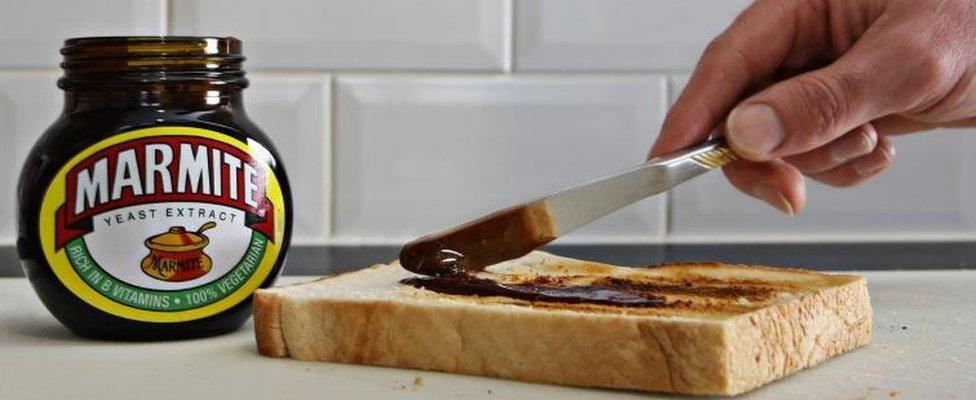
Analysis: Emma Simpson, business correspondent
Who should absorb the increase in costs as a result of the weaker pound? It's the question that retailers have consistently been asked these last few months as import prices start to rise.
Now that debate has exploded into the open with a stand-off between Britain's biggest consumer goods company and its largest retailer, Tesco.
Household staples, from Ben & Jerry's ice cream and Pot Noodles to Persil and Dove soap, are at stake. The extra spice to this story is that Tesco's boss, Dave Lewis, spent most of his career at Unilever before being poached by Tesco.
In the cut-throat world of grocery shopping, retailers are reluctant to pass on price rises to shoppers. But many suppliers are already seeing input costs rise because of the fall in the pound, although many will also have hedged their currency positions until at least the start of next year. So who ultimately takes the hit?
One grocery insider says in the case of Unilever, the weak currency was a smokescreen to raise prices, as some of the products are made in the UK.
Whatever the truth, this relationship is too important for the two sides not to reach a deal in the end. Will the other big grocers follow suit?

The former head of rival firm Northern Foods, Lord Haskins, told the BBC's Newsnight that Brexit had caused "a huge wobble" in the market, which was already suffering tensions because of the rise of online shopping and discount supermarkets Aldi and Lidl.
"Undoubtedly what Unilever is doing is justified in terms of the economics of it, but Tesco's worried that Aldi may not follow suit," he said.
"They will have to follow suit, because the costs as a result of devaluation are too big for any company to carry."
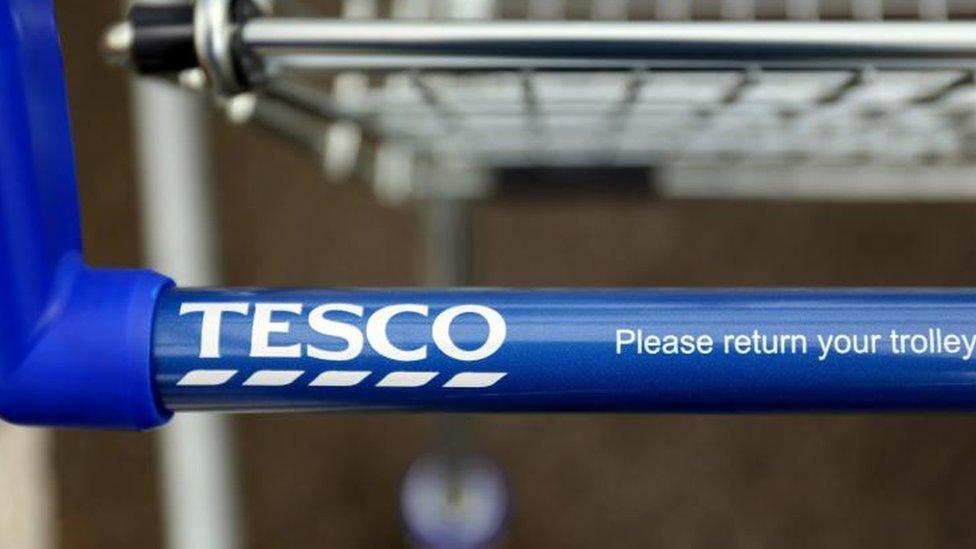
Lord Haskins, who wanted the UK to remain in the EU, forecast that food price inflation would hit 5% in about a year's time.
He added: "The moment the great British public realises that there's a real cost to pay for Brexit, then the government will have to take account of that."
Squeezed retailers
Sterling has dropped by 16% against the euro since the UK's Brexit vote.
Leading retail analyst Richard Hyman told the BBC: "The problem is that retailers can't just put up their prices and get away with it.
"Oversupply of retailers means that for the past 24 months there has been food price deflation. What makes them think they can just push prices higher?" he added.
- Published13 October 2016
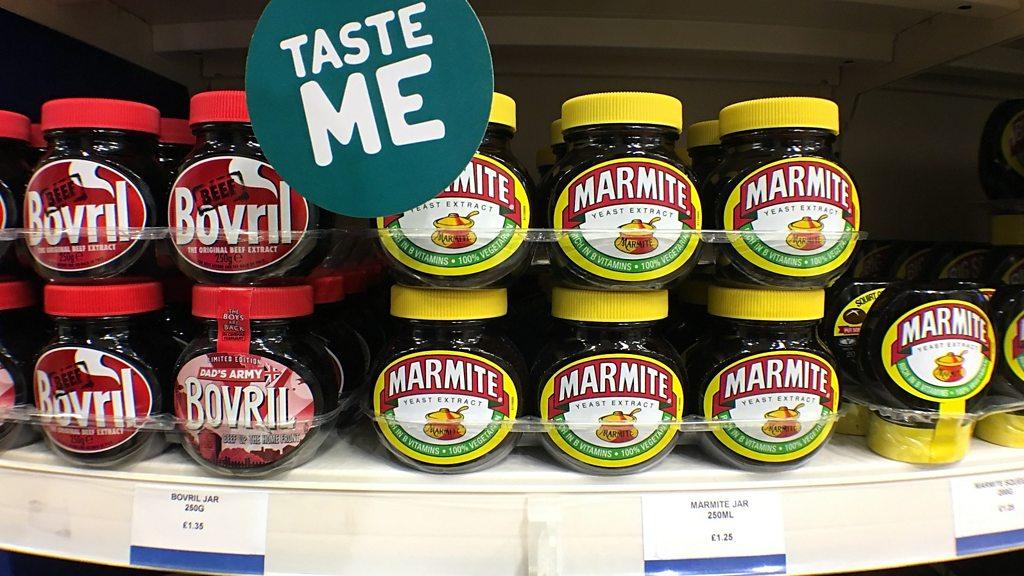
- Published12 October 2016
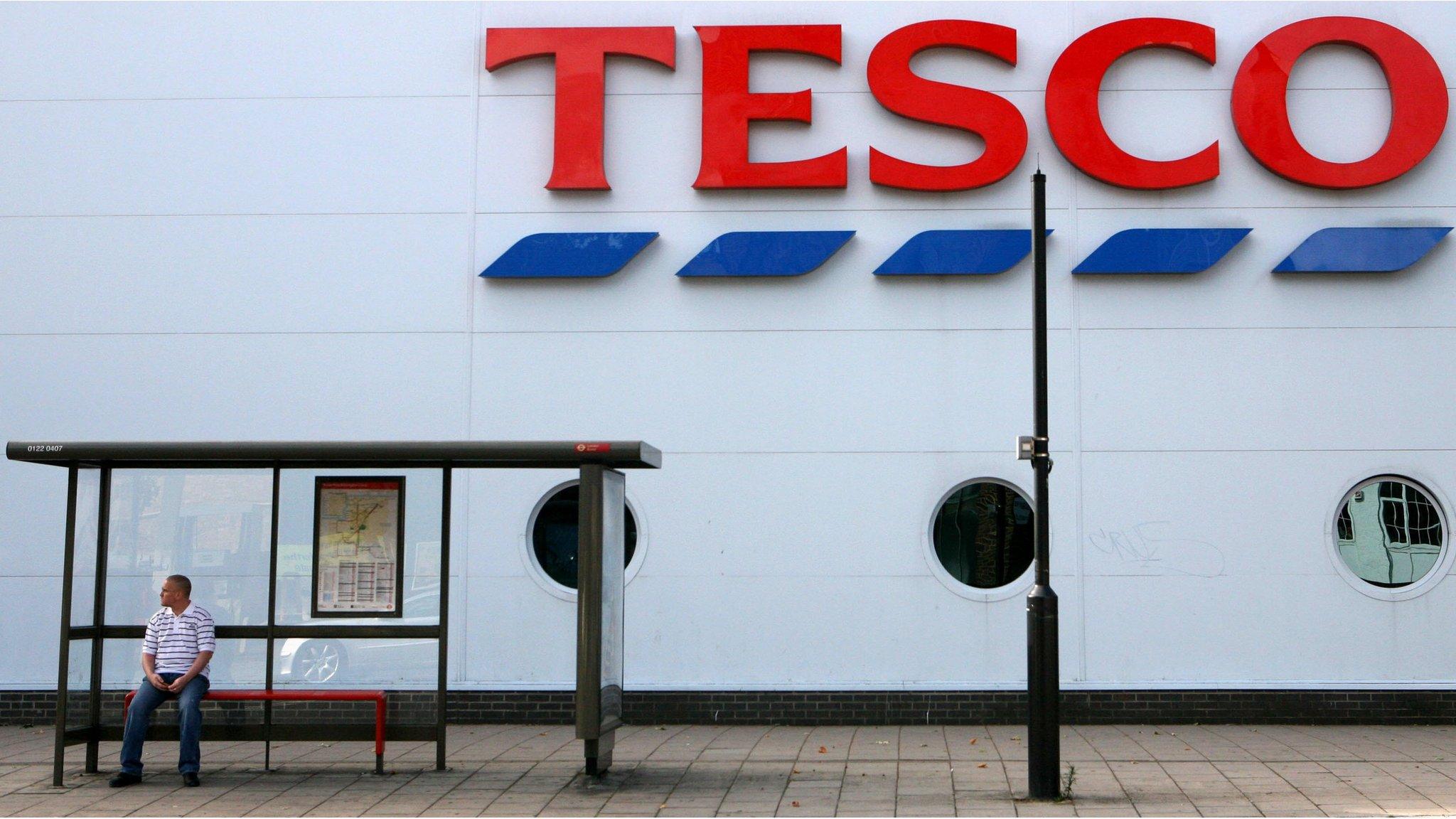
- Published13 October 2016
- Published16 June 2016
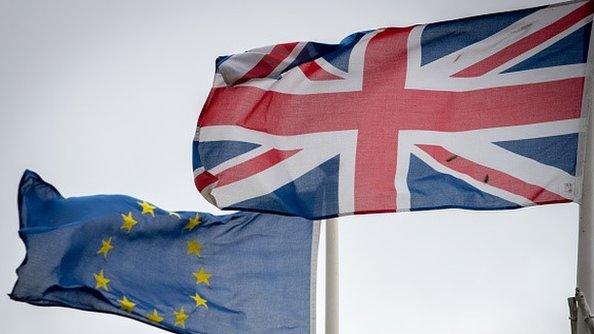
- Published12 October 2016
- Published10 October 2016
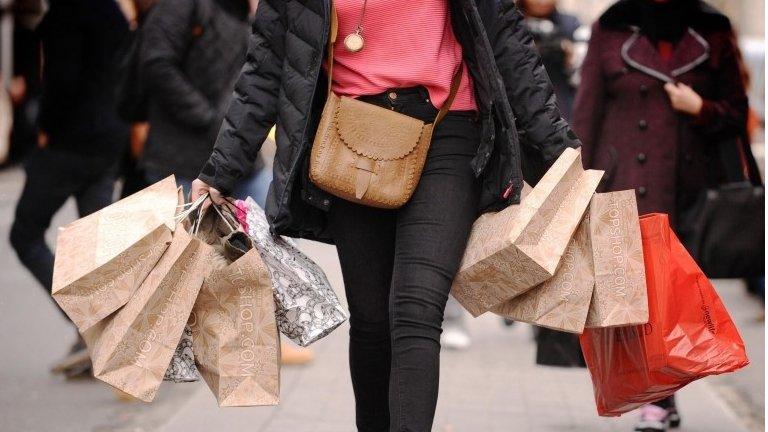
- Published10 October 2016
